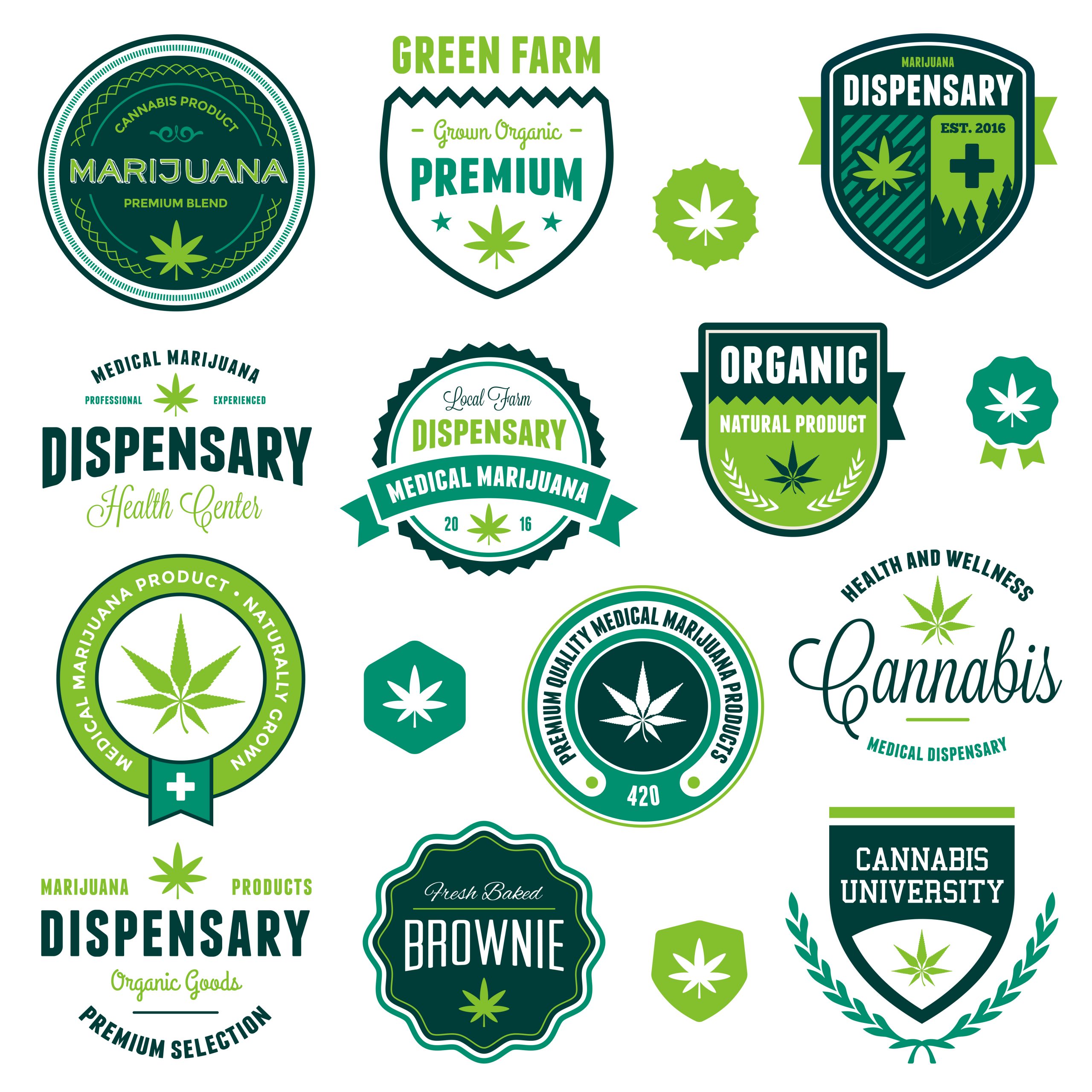“For the conventional consumer, the fact that a narcotic substance is produced primarily from flowers and not the leaves of the marijuana plant is not significant because mass media coverage had resulted in the impression that marijuana leaves represent a narcotic substance.”
 Recent case law demonstrates that judicial bodies in the European Union and Russia have taken the stance that cannabis signs and slogans are not acceptable as trademarks as they are contrary to public interest.
Recent case law demonstrates that judicial bodies in the European Union and Russia have taken the stance that cannabis signs and slogans are not acceptable as trademarks as they are contrary to public interest.
EU General Court Weighs in on CANNABIS STORE AMSTERDAM
At the end of 2019, the General Court of the European Union (the Court) reaffirmed the position of the European Union Intellectual Property Office (EUIPO) that the sign CANNABIS STORE AMSTERDAM accompanied by a graphical representation of marijuana leaves were not appropriate for registration and contradicted public policy of the European Union.
The Court assessed all presented evidence comprehensively and drew the following conclusions:
The applicant submitted for registration for goods and services in classes 30, 32 and 43. In the applicant’s view, the arguments for registration were grounded in the idea that nothing in the proposed sign hinted at a narcotic substance. Moreover, a mood-altering substance is produced primarily from the flowers of cannabis, not the leaves.
The Court rejected these arguments. First of all, the three words comprising the word sign CANNABIS STORE AMSTERDAM, interpreted both individually and combined, could be deemed as an obstacle to registration.
The first word, “cannabis”, and the graphic representation of marijuana leaves clearly led to the conclusion that the average person with a high degree of probability would perceive this designation as an offer of marijuana (drug) products.
The Court stated that, for the conventional consumer, the fact that a narcotic substance is produced primarily from flowers but not the leaves is not significant because mass media coverage had resulted in the impression that marijuana leaves represent a narcotic substance.
The second word, “store”, for obvious reasons would be associated with a shop, or a place where the average consumer can purchase everyday products for their needs without restrictions. This would imply that products with cannabis might be presented in any store for consumers to purchase without restrictions on age, health, etc.
The third word, “Amsterdam”, the applicant alleged was chosen because of the style and atmosphere of this city. The applicant denied any intention to allude to the overly tolerant attitude of Amsterdam with respect to drugs and products which include cannabis. However, the Court said that one of the hallmarks of Amsterdam is its nonjudgmental and open-minded approach to drugs, and the applicant had to have known this fact.
Overall, the Court found that the first and the second words together unambiguously meant “the shop where you can buy drugs,” and the third word just strengthened and reinforced this meaning. Thus, the Court held the sign unregistrable.
This finding also has a statutory basis within the meaning of article 83 of the TFEU (the Treaty on the Functioning of the European Union), where illicit drug trafficking is named as a serious crime with global reach.
Rospatent Rules on Cannabis Leaf Application
Remarkably, not that long ago, there was an attempt to obtain a trademark for cannabis in Russia. The Russian entity attempted to obtain trademark status for a cannabis leaf image.
The application was filed for registration in respect of goods 03, 05, 24, 25, 29, 30, 31, 32 and services of 35, 43 classes of the ISCGS (International Standard Classification of all Goods and Services).
According to the application materials, the proposed trademark consisted of the word element “cannabis” which is made in a standard font with letters of the Russian alphabet. The word element was underlined by a short black horizontal line, and an image element in the form of a stylized image of a plant branch with seven leaves. The designation was declared in black, white, beige, green, and brown color combinations.
The Federal Service for Intellectual Property (Rospatent) refused the registration based on the conclusion that the claimed mark was non-compliant with the requirements of paragraph 3 of Article 1483 of the Civil Code of the Russian Federation.
In accordance with this section, state registration is not permitted when a trademark represents or contains elements contrary to the public interest, principles of humanity and morality. Also, the registration cannot be granted when trademarks represent or contain elements that are false or misleading.
The rejection to registration was based on the fact that the claimed designation included an image of a cannabis leaf, which enhances the semantic content of the dominant verbal element “Canabis” (in Russian variation this word was used in obsolete form), which likely will be associated with marijuana. Simultaneously, this word, despite the obsolete spelling, indicates the type and composition of part of the goods, as well as the purpose of part of the service. For other goods that do not contain hemp or are not plants, the registration cannot be made in relation to the claimed designation because it can mislead the consumer regarding the type, composition and properties of the goods.
The biological and chemical characteristics of the plant were the basis of the more substantive argument against the registration of the proposed trademark. Rospatent stated that cannabis (hemp) is a genus of annual herbaceous plants. Indian hemp is a narcotic plant which is cultivated in the tropics and subtropics (India, Iran, Turkey, and other countries) mainly as a source of the drug-hashish (marijuana), the production of which is prohibited and criminalized in many countries, including Russia.
Potential Consequences
While the EU Courts are likely to evolve more rapidly on this issue in the near future, for now the position in both the EU and Russia is clear. The interests of the business community must be protected by governments in all countries, and business initiatives should be welcomed. But when weighing the physical and mental health of society on the one hand and business interests on the other, the priority must be the former.

![[IPWatchdog Logo]](https://ipwatchdog.com/wp-content/themes/IPWatchdog%20-%202023/assets/images/temp/logo-small@2x.png)

![[Advertisement]](https://ipwatchdog.com/wp-content/uploads/2024/04/UnitedLex-May-2-2024-sidebar-700x500-1.jpg)
![[Advertisement]](https://ipwatchdog.com/wp-content/uploads/2024/04/Artificial-Intelligence-2024-REPLAY-sidebar-700x500-corrected.jpg)
![[Advertisement]](https://ipwatchdog.com/wp-content/uploads/2024/04/Patent-Litigation-Masters-2024-sidebar-700x500-1.jpg)

![[Advertisement]](https://ipwatchdog.com/wp-content/uploads/2021/12/WEBINAR-336-x-280-px.png)
![[Advertisement]](https://ipwatchdog.com/wp-content/uploads/2021/12/2021-Patent-Practice-on-Demand-recorded-Feb-2021-336-x-280.jpg)
![[Advertisement]](https://ipwatchdog.com/wp-content/uploads/2021/12/Ad-4-The-Invent-Patent-System™.png)






Join the Discussion
No comments yet.